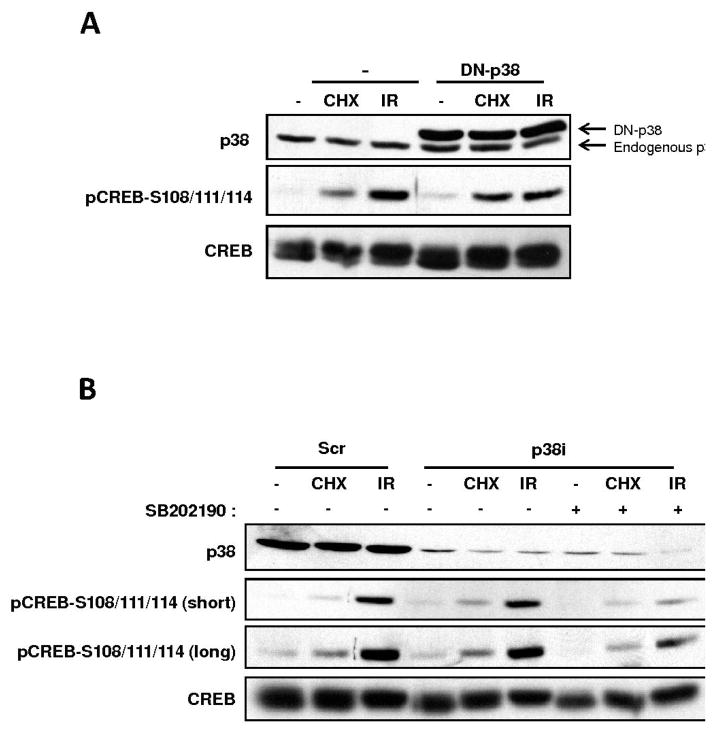Fig. 3.
Genetic interference of p38 does not impact stress-induced CREB Ser-108/111/114 phosphorylation. (A), A p38 dominant-negative (DN) construct does not impact CREB Ser-108/111/114 phosphorylation. HEK 293T cells were either transfected with vector DNA (−) or a plasmid encoding a dominant negative form of p38 (DN-p38) harboring T180A/Y182F mutations (17, 18). The cells were then either left untreated or exposed to CHX (20 μg/ml) or 5 Gy IR. Cell extracts were prepared and analyzed by immunoblotting with α-CREB, α-p38, and α-pCREB–S108/111/114 antibodies. (B), RNAi mediated knockdown of p38α does not inhibit CREB Ser-108/111/114 phosphorylation. HEK293T cells were transfected with scramble control (Scr) siRNA or siRNAs specific for p38α (p38i). The cells were then exposed to CHX (20 μg/ml) or 5 Gy IR or mock-treated. Additionally, one set of samples transfected with siRNAs specific for p38 (p38i) were pretreated with SB 202190 for a period of 1 h before exposure to CHX and IR. Cell extracts were prepared and immunoblotted with α-CREB, α-p38 and α-pCREB–S108/111/114 antibodies.

